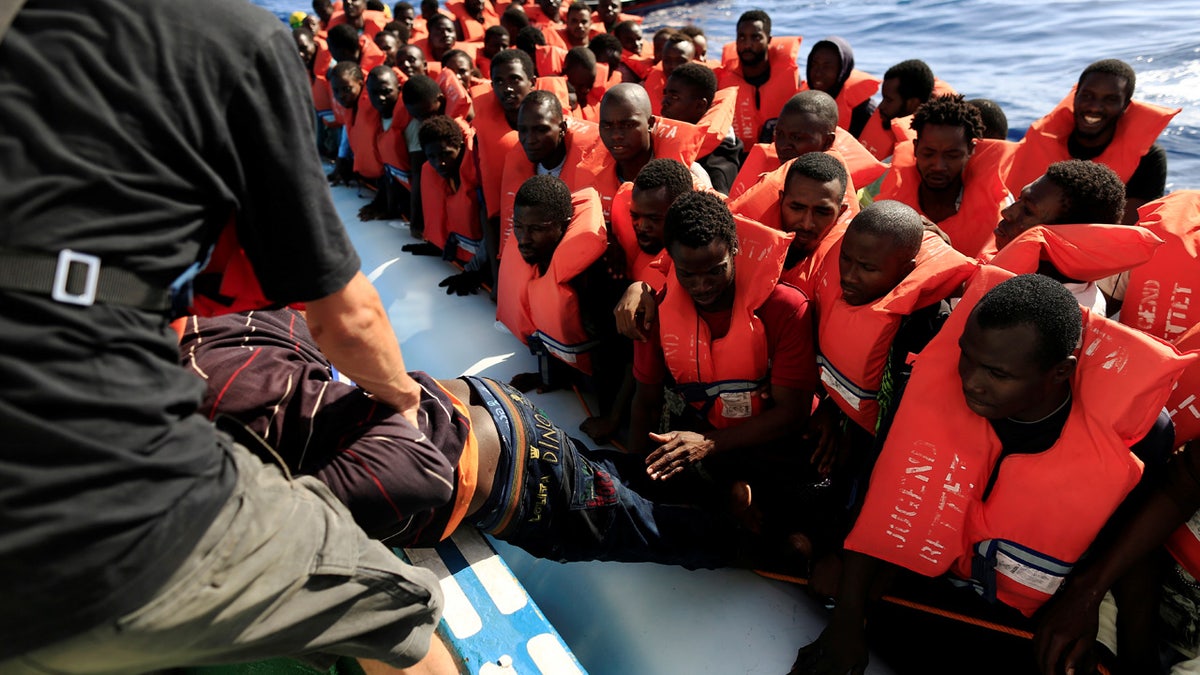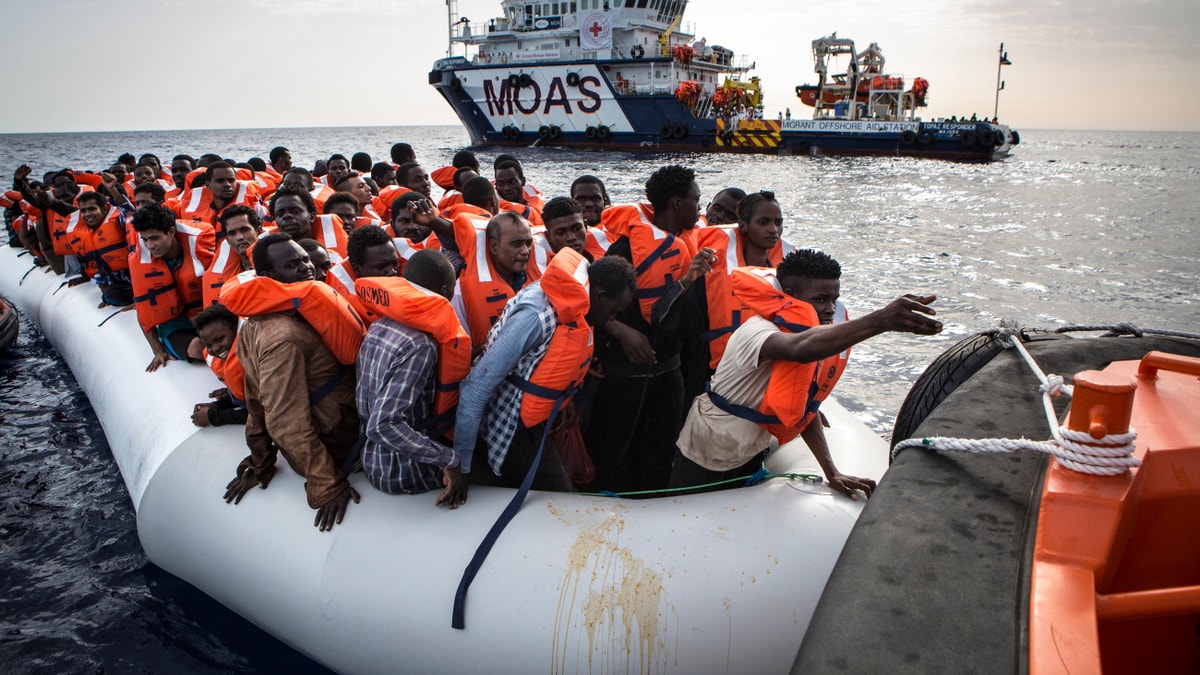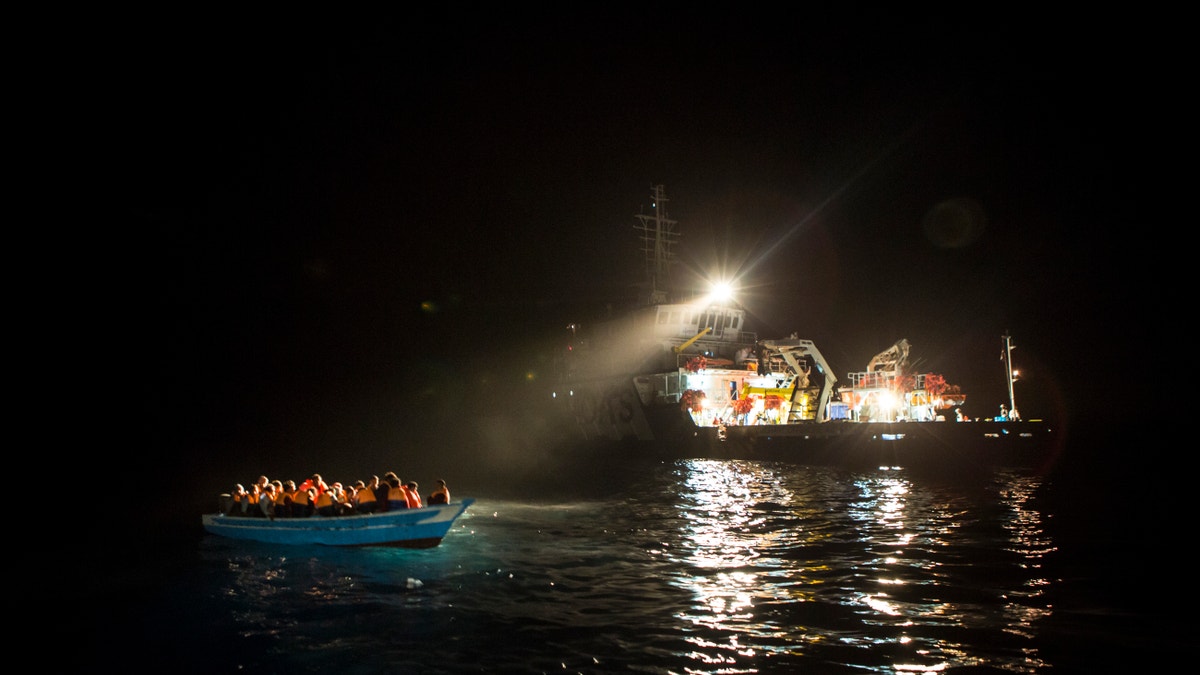
FILE 2016: A migrant is transferred from a dinghy by members of the German NGO Jugend Rettet during a rescue operation, off the Libyan coast in the Mediterranean Sea (Reuters)
The European Union said Monday that it is looking to limit the amount of migrants coming into its member countries by restricting the sale of rubber dinghies to Libya.
The foreign ministers of the 28 member states of the EU made the decision, which also covers rubber vessels that have outboard motors, to assist the North African nation stem the flow of migrants leaving its shores for Italy.
"We took a decision to introduce restrictions from today onwards on the export and supply to Libya of the inflatable boats and motors," EU foreign policy Chief Federica Mogherini said according to Deutsche Welle. "These are devices are used by traffickers for smuggling activities. This decision we have taken on the European Union level will help make their businesses and lives even more complicated."

The foreign ministers of the EU made the decision, which also covers rubber vessels that have outboard motors, to assist the North African nation stem the flow of migrants leaving its shores for Italy. (Mathieu Willcocks)
According to a statement released by EU officials, they claim that there is now a legal basis to block the supply of the boats to Libya is there are “reasonable grounds.”
The sales restrictions, however, will not apply to legitimate Libyan businesses, such as professional fishing crews. It was not immediately clear how the Union will check to ensure that exports do not end up in the wrong hands.
Europe, and Italy in particular, has seen a sharp rise in Migrants crossing the Mediterranean Sea for 2017.
More than 88,000 migrants have crossed the Mediterranean to Italy so far this year, and more than a quarter of them arrived in June alone, according to BBC News.

More than 88,000 migrants have crossed the Mediterranean to Italy so far this year, and more than a quarter of them arrived in June alone, (Mathieu Willcocks)
The EU foreign ministers have also extended a mission to help Libya re-establish effective controls at its southern borders where migrants first arrive. The country has been struggling to maintain its land borders with Sudan, Chad and Niger. The EU has also started training Libyan Coast Guard members.
The union has been facing growing pressure from Italy to quell the flow of migrants to its coast.
The country has also demanded that EU member states admit tens of thousands of migrants, as part of a unenforced emergency plan nearly two years ago.
